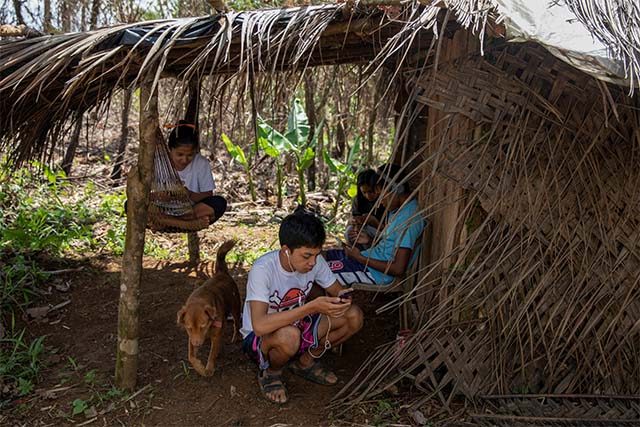
MANILA — The United Nations children’s agency UNICEF has urged education authorities to reopen schools as soon as possible in countries where millions of students are still not allowed to return to classrooms 18 months into the COVID-19 pandemic.
Schools in around 17 countries remain fully closed, while those in 39 countries remain partially closed, according to a report released by UNICEF on Thursday.
Among those “almost completely closed” are schools usually attended by nearly 77 million students in the Philippines, Bangladesh, Venezuela, Saudi Arabia, Panama and Kuwait.
Nearly a third of this figure is accounted for by the Philippines, which is fighting one of Asia’s worst coronavirus outbreaks and where a new school year started this week.
Pupils from the six countries represent more than half of the 131 million students worldwide that have missed more than three-quarters of their in-person learning, UNICEF said.
“The education crisis is still here, and with each passing day that classrooms remain dark, the devastation worsens,” said UNICEF Executive Director Henrietta Fore.
The report said teachers should be prioritized for COVID-19 vaccines, after health workers and those most at risk, to protect them from community transmission.
Students may be safer at home, but the availability of computers, mobile phones and internet, and the uneven quality of education, are among challenges they continue to face.
In the Philippines, some children have been forced to climb onto roofs just to get an internet signal.
READ: Scaling roofs and mountains, Filipino students battle to take online classes
In June, President Rodrigo Duterte rejected a proposal to allow face-to-face classes to resume in some areas, saying: “I cannot gamble on the health of the children.”
In a report released in April, the Asian Development Bank estimated school closures lasting more than a year could slash future earnings among the region’s students by as much as $1.25 trillion, or equivalent to 5.4% of GDP in 2020.
UNICEF and its partners will shut down their digital channels for 18 hours on Thursday to draw attention to the crisis and the “18 months of lost learning”.
“This is a crisis we will not allow the world to ignore,” UNICEF‘s Fore said. “Our channels are silent, but our message is loud: Every community, everywhere must reopen schools as soon as possible.” —Reporting by Enrico Dela Cruz Editing by Ed Davies









